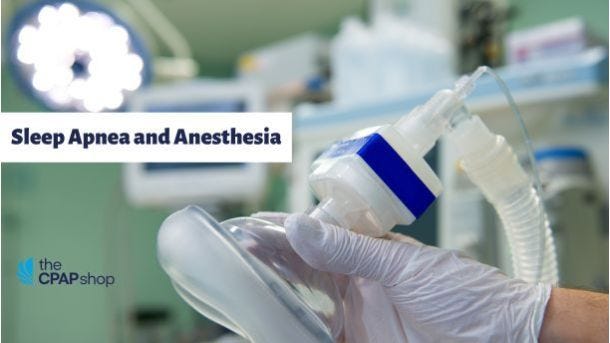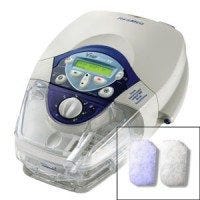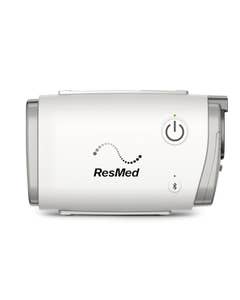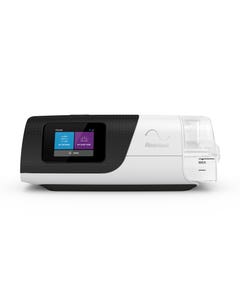What You Need To Know Before Surgery With Sleep Apnea
Bearing in mind that every surgery requires thoughtful preparation for the best outcomes, the special considerations for surgery patients with OSA do require some additional forethought by the patient as well as the surgical and hospital medical staff. Medical professionals have known for quite some time that patients with sleep apnea were at an increased risk of developing complications after operations. Although medical personnel has specific protocols in place for OSA patients undergoing surgery, the patient must be aware and proactive regarding the things they should know and do before surgery.
Sedation can relax the throat muscles beyond the normal level in non-OSA patients. Therefore, patients with obstructive sleep apnea tend to be more sensitive to what would otherwise be non-obstructive doses of drugs. Anesthesia can increase apnea episodes in quantity and severity, thereby further decreasing the all-important arterial oxygen saturation.
The anesthesiologist will perform thorough history and examination before the surgery, which often reveals airway difficulty. However, every OSA patient should be proactive in preparing themselves and their anesthesiologist by informing them well before the surgery. The majority of anesthesiology departments will have someone talk to you about your options and your concerns. So, it's important to make contact as soon as you schedule your surgery.
Working with the anesthesiologist ahead of time gives them time to come up with a plan. They'll want to prioritize your comfort and safety relative to pre-existing problems such as OSA. The final choice of the type of anesthesia will be a team decision between the patient, surgeon, and anesthesiologist. It will be based on the circumstances, and the patient can have some control over the choice.
In addition, not every person on the hospital medical staff will be familiar with the operation of each various model and type of CPAP, APAP, or VPAP machines. Consequently, it is wise to inform hospital staff of the machine beforehand so that they have an opportunity to be sure of its proper operation before your operation and hospital stay.
The Joint Commission on Hospital Accreditation requires the hospital engineering staff to inspect your CPAP machines beforehand if a patient needs them during recovery. OSA patients should make arrangements to bring it in early so that the staff can inspect it as soon as possible. That way, there is no problem when it comes time for its use. Providing the staff with a copy of the prescription covering your prescribed pressure is also recommended.
Bringing the CPAP, APAP, or VPAP machines to the hospital will not be necessary for same-day surgery. You will be home again the evening immediately following the surgery. For in-hospital stays overnight, you will likely need your machine. Since every patient is closely monitored in the recovery room where potential breathing problems can be easily handled, your machine will not be needed until you are returned to your room.
Regardless of the type of procedure, your hospital’s surgical and medical staff is very ready to deal with OSA patients. The surgery and recovery are without complication in relation to your OSA. Be proactive and consult with the hospital before the surgery date. You can do your part in helping them prepare for the smoothest possible surgery. This will give you the peace of mind to concentrate on recovery and getting back to 100 percent.
For additional information on various topics concerning sleep apnea and CPAP products, please refer to our blog. It has constant updates and offers free advice and information. If you’d like to learn more about The CPAP Shop, call us at (866) 414-9700. Or, you can contact us through our website: https://www.thecpapshop.com/contact-us.
The CPAP Shop teamed up with Dr. Vidya Pai, an experienced sleep medicine specialist, to write this blog post. Our team of authors and medical experts frequently evaluates our blog posts so that readers can learn factual information and make knowledge-based decisions. Our blogs get constantly updated with the most accurate information to provide the most up-to-date facts and research.
If surgery is necessary for a person’s life, having surgery while also having sleep apnea, is doable with some extra precaution. There may be some special care when dealing with anesthesia, from preparation to after the surgery is concluded. Medical professionals have known for quite some time that patients with sleep apnea were at an increased risk of developing complications after operations. Although medical personnel has specific protocols in place for OSA patients undergoing surgery, the patient must be aware and proactive regarding the things they should know and do before surgery.
Sleep Apnea and Anesthesia - How Are They Related?
Sedation can relax the throat muscles beyond the normal level in non-OSA patients. Therefore, patients with obstructive sleep apnea tend to be more sensitive to what would otherwise be non-obstructive doses of drugs. Anesthesia can increase apnea episodes in quantity and severity, thereby further decreasing the all-important arterial oxygen saturation.
Additionally, the use of anesthesia slows down a person’s breathing, making it more difficult for those with sleep apnea to breathe. Because of this, they are more sensitive to the side effects of anesthesia.
Does Sleep Apnea Affect Surgery?
Having sleep apnea puts someone at a higher risk during and after surgery. That’s because of the pain medicines given after surgery. These medicines can make it harder to wake up to help someone breathe again. They also can relax throat muscles, resulting in breathing stopping more often.
So, it’s important to tell your doctors and medical team if you have sleep apnea. They will make sure to take that into note when preparing and performing surgery.
Preoperative Assessment for Sleep Apnea Patients
A preoperative assessment should begin with an extensive review of medical history and a physical examination. Since sleep apnea goes undiagnosed in most of the population, doctors will ask sleep apnea-related questions, especially to those who are more likely to have this sleep disorder, like overweight males 40+ or older. However, females and those in other age categories could also have sleep apnea as well.
If sleep apnea is suspected after certain questions, a person will be urged to take a sleep study. Additionally, a physical examination is required to observe those who are obese and store excess fat in their upper extremities. That’s because fat stored in the neck area indicates a higher risk for having sleep apnea.
Postoperative Care for Sleep Apnea Patients
Some sleep apnea patients can have problems waking up from anesthesia. That’s because their airways can be narrowed from swelling after undergoing surgery. The lingering effects of anesthesia can also pose some problems as well. Many patients will be required to use a CPAP machine to help them with their breathing until they are fully awake and off of anesthesia. Some patients may even be required to get extra care in another facility for better monitoring during this time.
How To Reduce Risks From Anesthesia if you have Sleep Apnea
Regardless of the type of procedure, your hospital’s surgical and medical staff is very ready to deal with OSA patients. The surgery and recovery are without complications in relation to your OSA. Be proactive and consult with the hospital before the surgery date. You can do your part in helping them prepare for the smoothest possible surgery. This will give you the peace of mind to concentrate on recovery and getting back to 100 percent.
For additional information on various topics concerning sleep apnea and CPAP products, please refer to our blog. It has constant updates and offers free advice and information. If you’d like to learn more about The CPAP Shop, call us at (866) 414-9700.








